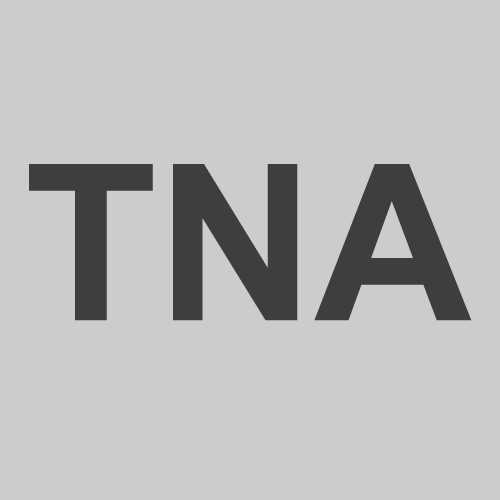As a small business owner, one of the most critical aspects of running a successful business is managing cash flow. Proper cash flow management is essential for not only day-to-day operations but also for long-term business sustainability. In uncertain times, such as a recession, understanding your cash needs can help recession-proof your business. In this article, we will explore the importance of cash flow management in a recession, tools and strategies to help you navigate a recession, and how to improve decision-making with a statement of cash flows.

Table of Contents
- Preparing Your Small Business Finances for a Recession
- Tools to Make Your Business Recession-Ready
- Cash Flow-Based Strategy to Navigate a Recession
- Understanding Cash Flow Runway
- Calculating Cash Flow Runway
- Having Cash During a Recession
- Safest Place to Put Business’s Money During a Recession
- Cash Reserves to Survive a Recession
- What Not to Do
- Improving Decision Making with a Statement of Cash Flows
- When to Spend Money in a Recession
Preparing Your Small Business Finances for a Recession
Preparing for a recession involves understanding your business’s cash needs and implementing strategies to manage them effectively. Start by reviewing your financial statements to understand your current cash position, revenue streams, and expenses. Analyze your past financial performance to identify areas of improvement and create a plan to reduce expenses where possible. Consider diversifying your revenue streams to reduce reliance on a single product or service.
Tools to Make Your Business Recession-Ready
There are various tools you can use to make your business recession-ready. One such tool is cash flow forecasting. Cash flow forecasting enables you to project future cash flows, identify potential shortfalls, and make adjustments to prevent a cash crisis. You can use various software applications, such as QuickBooks, Xero, or Freshbooks, to help with cash flow forecasting. If you need help building or interpreting these projections, reach out to your accountant.
Another tool is to implement strict cash management policies. These policies can include tracking expenses, reducing unnecessary spending, and implementing strict credit terms for customers. Implementing these policies can help you conserve cash, reduce expenses, and maintain healthy cash flow.
Cash Flow-Based Strategy to Navigate a Recession
One strategy for navigating a recession is to implement a cash flow-based strategy. This strategy involves understanding your business’s cash needs, identifying potential shortfalls, and taking proactive measures to prevent cash shortages. This can include renegotiating payment terms with suppliers, reducing inventory levels, and implementing strict credit policies for customers. The goal is to maintain a healthy cash flow position while reducing unnecessary expenses.
Understanding Cash Flow Runway
A cash flow runway is the length of time a business can continue operating with its current cash reserves. A longer cash flow runway provides greater financial flexibility and the ability to weather unexpected events. The length of your cash flow runway depends on several factors, including your current cash position, revenue streams, and expenses.
Calculating Cash Flow Runway
To calculate your cash flow runway, divide your current cash reserves by your monthly cash burn rate. Your cash burn rate is the amount of cash your business spends each month to operate. For example, if your business has $50,000 in cash reserves and a monthly cash burn rate of $10,000, your cash flow runway is five months.
Having Cash During a Recession
Having cash during a recession is critical to business survival. Cash provides the financial flexibility to weather unexpected events and take advantage of opportunities. However, it is essential to balance cash holdings with investment opportunities to ensure a healthy return on investment.
Safest Place to Put Business’s Money During a Recession
The safest place to put your business’s money during a recession depends on your risk tolerance and investment goals. Some safe investment options include money market funds, treasury bills, and high-yield savings accounts. These options provide low-risk, low-return investment opportunities that can help preserve capital during uncertain times.
Cash Reserves to Survive a Recession
The size of your cash reserves depends on your business’s size, cash flow position, and industry. As a general rule of thumb, it is recommended that businesses maintain three to six months of cash reserves. However, businesses with significant cash flow volatility or those in industries prone to economic cycles may require larger cash reserves to weather a recession.

What Not to Do
In a recession, it is essential to avoid taking actions that may further harm your business. Here are a few things to avoid:
Don’t cut marketing expenses.
While it may be tempting to cut your marketing budget to conserve cash during tough times, it can hurt your business in the long run. In a recession, customers may be more selective in their purchasing decisions, and cutting marketing expenses can limit your ability to reach potential customers.
Don’t ignore accounts receivable.
During a recession, it can be challenging to collect payments from customers. However, it is essential to stay on top of accounts receivable to maintain healthy cash flow.
Don’t panic and make hasty decisions.
In times of recession, it is easy to panic and make hasty decisions. However, it is crucial to remain calm, assess the situation, and make informed decisions based on the facts.
Improving Decision Making with a Statement of Cash Flows
A statement of cash flows provides an overview of a business’s cash inflows and outflows. It helps business owners understand where their cash is coming from and where it is going. By analyzing a statement of cash flows, business owners can make informed decisions about their cash needs, investment opportunities, and financial strategies.
When to Spend Money in a Recession
In the midst of an economic recession, it may be tempting to cut all expenses to conserve cash. However, some expenses can help keep your business afloat during challenging times. Investing in marketing campaigns, implementing cost-saving measures, and diversifying revenue streams and your customer base can help maintain healthy cash flow and position your business for long-term success.
Understanding your cash needs is critical to running a healthy business, especially in a recession. By preparing your finances, using tools and strategies to navigate a recession, avoiding harmful actions, and improving decision-making with a cash flow management, you can recession-proof your business and position it for long-term success.
Michael Dolezal & CO, CPAs & Business Advisors
Looking for support in making sound financial decisions for your business? We can help. Reach out to our team of experts today to ensure your business finances are safe and secure.











